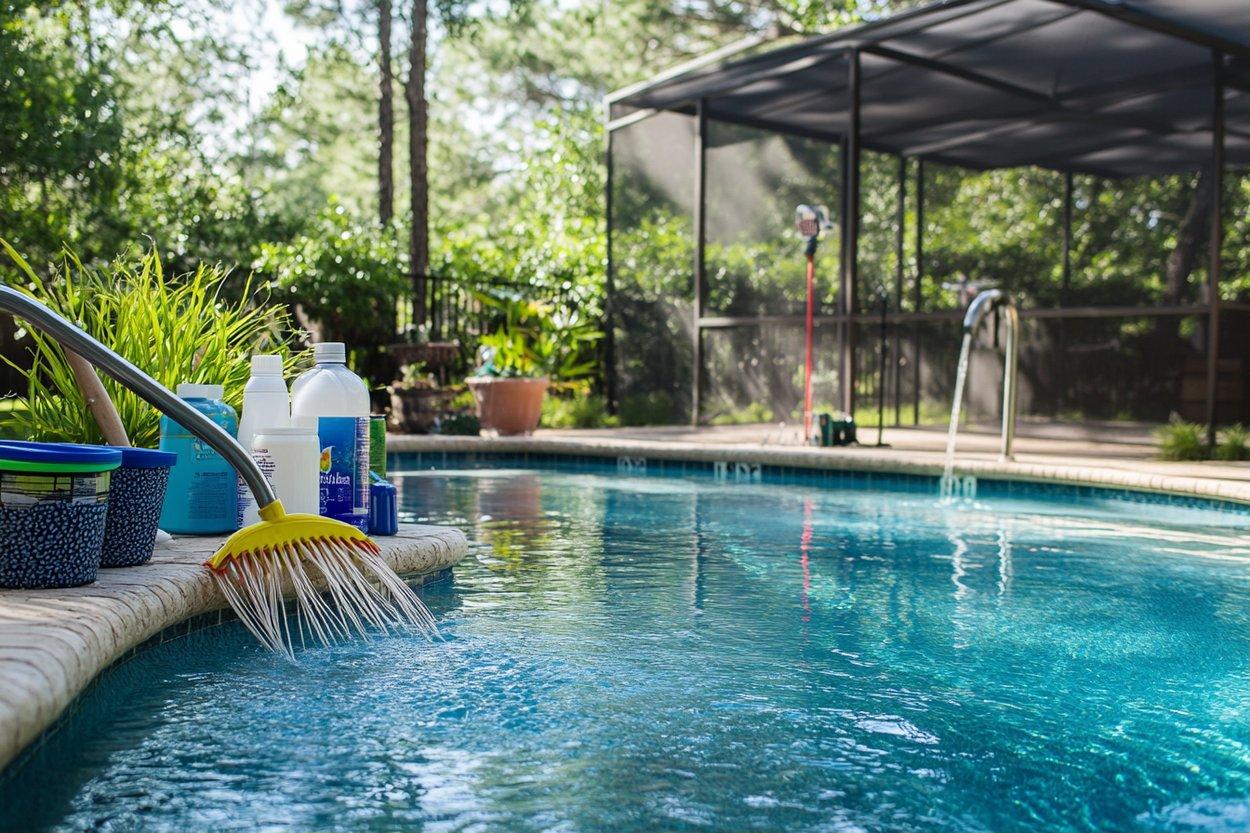Complete Guide to Pool Cleaning and Maintenance
Keeping a pool clean is about more than aesthetics — it protects your investment, ensures safe water for swimmers, and reduces long-term repair costs. Whether you have a backyard pool at your home or maintain a community swimming pool, consistent cleaning and smart maintenance habits mean clearer water, fewer chemical surprises, and better performance from filters and pumps.

How often should I clean my pool?
Regular attention prevents small issues from becoming major problems. Skim surface debris daily or every few days depending on nearby trees and weather. Brush walls and steps at least once a week to prevent algae and scale buildup. Vacuuming the bottom is typically needed weekly, though heavy use or storms may require more frequent vacuuming. Clean or backwash filters according to manufacturer recommendations — usually every few weeks for DE or sand filters, and clean cartridge filters more often. Inspect equipment visually weekly to spot leaks, loose fittings, or abnormal noises early.
What are essential swimming pool water tests?
Testing your pool water regularly keeps chemical balance in check. Key measures include pH, free chlorine, total alkalinity, calcium hardness, and cyanuric acid (stabilizer). Aim to test free chlorine and pH at least twice a week in warm months; alkalinity and calcium hardness can be checked monthly. Test kits range from simple strips to digital meters and drop-test kits; choose one that matches your comfort level. Accurate testing prevents irritation for swimmers and helps chemicals work efficiently, reducing the need for frequent shocking or large dose corrections.
How to keep pool water clear and balanced
Clear water depends on circulation, filtration, and correct chemistry. Run the pump long enough to completely turnover the pool water daily — many homes run pumps 8–12 hours, though requirements vary by pool size and local climate. Maintain the filter to optimize flow: backwash when pressure rises above the recommended level, or clean cartridge filters regularly. If water becomes cloudy, use a clarifier or perform a targeted shock treatment following product instructions. Maintain pH in the appropriate range so sanitizers remain effective; low pH wastes chlorine, while high pH reduces its disinfecting power.
Can pool cleaning protect your home and family?
Effective pool cleaning reduces health risks and prevents property damage. Proper sanitization limits bacteria and pathogens, while consistent maintenance lowers mosquito breeding and pest attraction. Keeping filters and pumps in good order prevents leaks that could cause structural or landscaping damage near your home. For swimmers with sensitivities, balanced water reduces eye and skin irritation. This article is for informational purposes only and should not be considered medical advice. Please consult a qualified healthcare professional for personalized guidance and treatment.
What routine maintenance extends pool life
Routine tasks extend equipment lifespan and preserve the pool shell. Regularly inspect and service pumps, heaters, and chlorinators; address worn belts, seals, or valves promptly. Maintain proper water levels to protect pump seals and prevent airlocks. Clean tile lines and check for surface cracks or loose coping. Use a pool cover when not in season to reduce debris and evaporation; winterize per local climate recommendations to avoid freeze damage. For complex repairs or yearly tune-ups, consider hiring reputable local services for inspections and preventive maintenance.
Conclusion
A consistent, balanced approach to pool cleaning yields clearer water, safer swimming, and longer-lasting equipment. Combine frequent surface skimming and weekly brushing/vacuuming with routine chemical testing and filter care. Stay attentive to changes after storms or heavy use, and address equipment issues early to avoid costly repairs. Whether you manage your own home pool or coordinate with local services, building a simple maintenance routine protects both your investment and everyone who uses the swimming pool.






